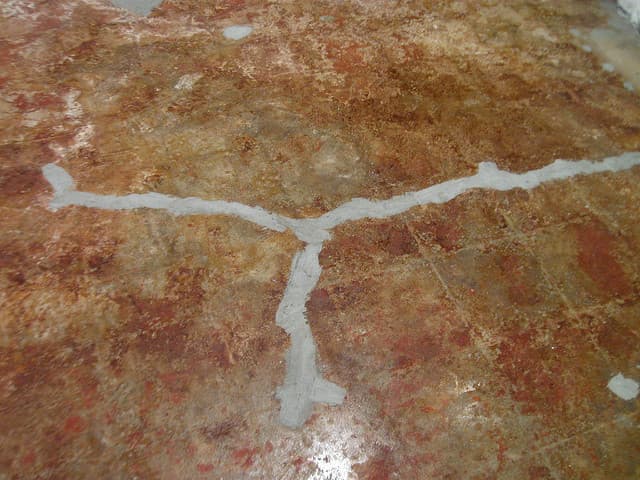
Becoming a boilermaker means working for the aeronautical and aerospace industry, for petrochemical companies, within the nuclear and cryogenic fields, with renewable energy, and more.
Boilermakers are part of each and every innovation, and industrial battle, and are at the heart of the greatest human achievements; they literally bring engineers' visions to reality.
Boilermaker Trade: Brief Description
The standard definition of a boilermaker is that of a steam generator, tank, and boiler maker of all kinds (portable boilers, steam tanks, float tanks, brewery tanks, etc.). The list is extensive and their expertise has led them to create a variety of parts. If the essence of their craft was to make boilers, today, it’s fair to say that their trade has evolved in some ways.
A boilermaker is, specifically, a metal specialist. Their role is to shape a sheet of raw metal into an object. Whether it's a car piston, a nuclear reactor tank, a ship's hull, a wind turbine mast, a freight car, or a rocket launcher, boilermakers do it all. The tradesperson is given an industrial plan indicating the type of part they're tasked with making. This then allows them to work with metal sheets, profiles, or tubes, and shape a wide variety of parts.
Often compared to a welder or a metallurgist, boilermakers are part of a sector that includes boiler making, piping, and welding. They know how to work all metals, without exception (copper, zinc, brass, etc.). Thus, boilermakers become essential on every large construction worksite.

Source: Flickr
The boilermaker's work demands great precision. The safety and cost-effectiveness of entire industries depend on the quality of the parts they make. Therefore, boilermakers must work within a large number of standards:
Standards W471, W47.2, W59, etc., as per the welding standards association CSA (Canadian Standards Association);
Standards API 620, API 650, and API 653, as established by API (American Petroleum Institute);
The ASME standards (The American Society of Mechanical Engineers), for welding and pressure vessels.
Additionally, there are local regulations set out in national (National Building Code) and provincial (Construction Code) legislation, in instances where there are no municipal regulations to adhere to, particularly with respect to construction.
Boilermaker: Tools
Boilermakers use a variety of tools to perform their work, and they must also know how to maintain and repair them. These can be divided into five categories:
Manual tools
Metal scissors and chisels;
Bolt and tube cutters;
Hand saw and hacksaw;
Multipurpose knife;
Vises (sliding tail, bench, or tube);
Pliers (serrated end, a serrated edge, end-cutting, etc.);
etc.
Electric tools
Shears and nibblers;
Heat gun;
Saws (reciprocating blade, circular, and jig);
Grinders;
Drills;
Presses.
Assembly tools
Bars (lever, bending and retaining bars)
Hydraulic ram;
Wedges (steel, brass, and wood);
Hammers, sledgehammers, and mallets (spark-proof and rubber)
Punches and chisels.
Tightening tools
Open-end wrenches;
Adjustable wrenches;
Tube wrenches;
Box wrenches;
Hex keys;
Screwdrivers;
etc.
Welding tools
TIG torch and exchange stations;
Leather welding screen;
Fix and portable electric arc furnaces;
Electrode clamps;
Preheating and heat treatment equipment;
Temperature indicating crayons;
etc.
How to Become a Boilermaker
People tend to focus on the solid academic foundation that’s required to become a boilermaker, especially in terms of mathematics and logical thinking. Therefore, it's absolutely necessary for one to have mastered their high school curriculum to be able to adequately follow specialized DVS training. And, this program is only offered at the CF des Métiers de l'Acier de Montréal, which is in Anjou.
However, note that tuition costs are $31,250, in addition to material costs which add up to $950 and an extra $250 for the application process. Although these costs can be offset after 2 years of professional practice, you’ll still need to be willing to complete 1,290 hours of in-class lectures.

Source: Flickr
Boilermaker: Essential Skills
The boilermaker trade is rooted in manual know-how, which also requires considerable technical skills. Consequently, a large number of standards regulate this trade to ensure that boilermakers are able to, without a doubt, produce a certain quality of work, which happens to be very high.
Must-have knowledge to excel as a boilermaker
Reading blueprints(assembly drawings, triangulation drawing technique, etc.) | Understanding graphic conceptsUnderstanding scales |
Mathematics | ArithmeticImperial and metric system conversionSquare rootRule of three |
Geometry | Surface area calculationsAngle calculationsTangents, sines, cosines formulas |
Metallurgy | Metal propertiesDilation and retractionUsing the right tools with various metals |
Scaffoldings | Mounting/DismountingUsing aerial platformsUsing platforms |
Safety | Wearing/using protective gearUnderstanding the Workplace Hazardous Materials Information System Gas properties and hazardsDangers of gas |
Lifting techniques | Crane operator hand signal guideUsing and maintaining lifting equipmentUnderstanding load capacities |
Welding | Electric arc and shield metal arc welding (SMAW)Flux-cored arc welding (FCAW)Gus tungsten arc welding (GTAW)Electrogas arc welding (EGW)Plasma cutting |
Quality control | Waterproof testsChecks to preserve the integrity of objects |
On top of these essential technical skills, boilermakers should have motor skills such as dexterity and movement coordination, especially while welding.
Another important point is that boilermakers shouldn't suffer from vertigo or claustrophobia. In fact, a lot of work must be done both at great heights and in enclosed spaces.
Lastly, boilermakers have to be able to detect the presence of certain gases and abnormal sounds in the structure they're making and have good vision to properly see the components they're welding.
Boilermaker: Job Opportunities & Salary
As it's an essential trade, boilermakers have a lot of job opportunities; 88% of the trainees are employed immediately after completing their training.
The boilermaker trade is sectioned off into three sectors:
94% industrial
4% institutional and commercial
2% civil engineering and roadwork
By now, given their skills, you've probably figured out that boilermakers can work just about anywhere, as much on-site as in workshops. In fact, 75% of boilermakers work outside of their area of residence, although in the province of Quebec alone, to name just a few places, boilermakers are indispensable:
In shipyards in Lévis or Montréal
At Gentilly nuclear-generating station
At the La Grande generating station
In one of the 115 automobile manufacturing plants in the province
At Bell Textron
At Bombardier Inc.
At Textron
At Pratt & Whitney Canada

Source: Flickr
Being a boilermaker in Quebec means earning an hourly wage of $42.46, which is slightly less than the average Canadian wage for said trade, which is recorded at $44/hour. As such, the highest hourly salary made by boilermakers in Quebec can be $44.28/hour, while in Ontario and British Columbia, it can be as high as $50/hour.
What makes this trade even more appealing rests on the career development offered. It isn't uncommon for boilermakers to become forepersons, project managers, or even consultants with engineering firms. At such levels, the salary prospects are no longer the same.
Boilermakers are a part of a future-oriented trade that's geared toward the completion of large-scale projects. Not only are these individuals a core part of a variety of industries, but they're also capitalizing on the evolving nature of environmental standards. With each new piece of legislation, new systems need to be manufactured (filtration systems, gas treatment systems, hazardous product management systems, fine particulate matter systems, and so on). These changes positively impact the boilermaker's workload, which is constantly in demand.
Four things are safe to say about boilermakers:
They’ll find work, whether near their home or elsewhere;
They’ll be adequately compensated;
They’ll be eligible for future career advancement;
They’ll be able to switch trades.
Looking for something else?
Related articles
The latest industry news, interviews, technologies, and resources.

Editorial Team
•08 Oct 2025
Several construction trades offer great professional prospects, whether for workers who wish to reorient themselves and change course or for those who wish to improve their skills. Here’s an overview of some of these promising professions!

Amanda Harvey
•08 Nov 2023
For an entrepreneur, receiving a large number of requests for various projects bodes well for business. However, your phone ringing off the hook shouldn't be enough to reassure you.

Editorial Team
•06 Sep 2024
Hardwood floors are sought-after, and most homeowners want nothing more than a beautiful material coating the base of their home. However, hardwood floor maintenance is a job in itself, and keeping this material looking good requires a little bit of fineness and consideration.

Editorial Team
•04 Mar 2024
Your rain gutters (also known as eavestroughs) work with your home to keep it in good condition. Cleaning your gutters semi-regularly will help you to avoid considerable damage to your foundation, as a clogged gutter will send water streaming down the side of your house. To help prevent damage to your foundation, as well as landscaping, crawlspaces and other surfaces, gutters should be well looked after!

Editorial Team
•08 Nov 2023
Pyrite is an iron sulphide, known as “fool’s gold” whose crystallization shimmers with gilded reflections. If the brilliance of this worthless mineral deceived gold prospectors of their time, its oxidization when in contact with moisture and oxygen, producing sulfuric acid, stirs up a bitterness in many owners today. The presence of pyrite or of pyrrhotite underneath a foundation may cause the slab of concrete of the house to rise and crack.